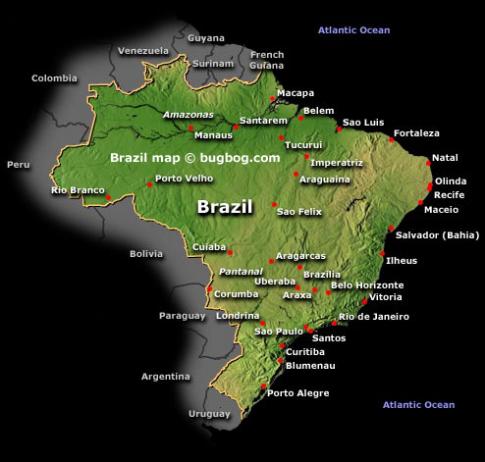Extending the Lula road

Brazil's current economic growth rate is an impressive 7.5 per cent.
The fact that the Brazilian presidential election will be decided by a runoff brings into focus several key issues facing this emerging economic and political power. The campaign front-runner, Dilma Rousseff of the Worker's Party (PT), was halted by a late surge in the support for Marina Silva of the Green Party (PV); Ms Silva garnered no less than 19 per cent of the vote, leaving Ms Rousseff on 47 per cent and short of an outright win.
The first question that arises from this is whether the October 31 runoff will see Ms Silva's supporters back Ms Rousseff or the second-placed Jose Serra of the Social Democrats (PSDB), who polled 33 per cent in the first round. Both are experienced politicians with very different backgrounds. Ms Rousseff is a former left-wing revolutionary who survived torture under the 1970s' dictatorship, has a formidable mind, and has been a career civil servant. Mr. Serra was a regional politician and served as a Minister under President Henrique Cardoso. It is notable that the PT candidate failed to score a clear win despite the backing she received from outgoing President Luiz Inácio Lula da Silva.
The eventual winner will have a good starting point, not least because millions have been lifted out of poverty with Lula's Bolsa Familia (family grant) programme of state benefits paid directly to women in the poorest classes. Lula's use of oil revenues for the larger public good has helped in other directions as well. Brazil's current economic growth rate is an impressive 7.5 per cent. This has created higher expectations, for example in respect of the vital public education system, which is widely held to be crucial to the economy and especially to the formerly excluded groups of the poor. As in the case of India, Brazil faces formidable infrastructural challenges. The transport infrastructure especially needs substantial modernisation. The new President is likely to come under international pressure to rely on the private sector for this, and a PT government will put up some resistance to this.
Secondly, in the light of the first-round vote, the new President will need to pay more attention to a range of Green concerns and issues and modify development policies accordingly. If Ms Rousseff prevails in the runoff, as she is expected to do, she will not only be Latin America's sixth woman head of state in the last two decades. She will also outrank German Chancellor Angela Merkel and U.S. Secretary of State Hillary Clinton in status. Substantively, she will be a catalyst for women to play a much greater part in all areas of Brazilian public life. The best runoff outcome would therefore be a Rousseff win with Green support.
Hindu News




 del.icio.us
del.icio.us Digg
Digg

Post your comment